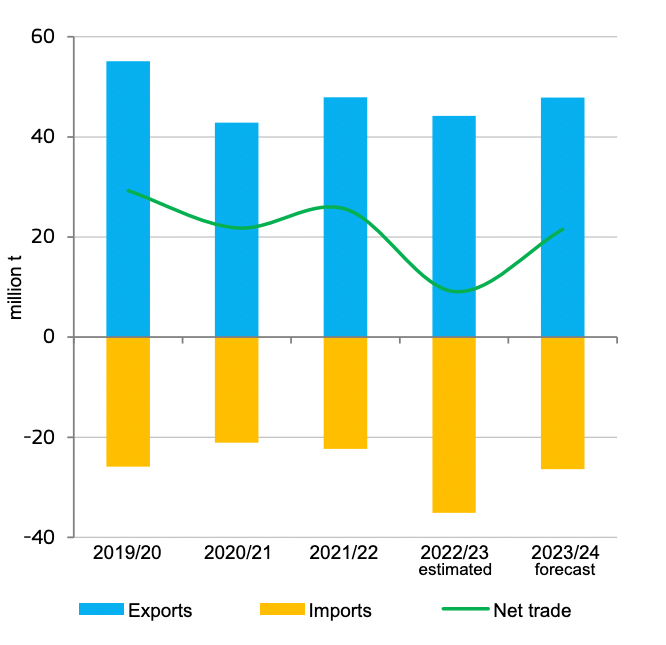According to the European Commission’s spring 2023 edition of the short-term outlook report for EU agricultural markets, the hot and dry weather impacted the EU cereal production in 2022/2023, in particular maize with yields that dropped by 25%. Increasing imports from Ukraine help EU regions impacted by drought to satisfy their domestic use, most of which is taken by the feed demand. The poor harvest combined with high cereal prices at the beginning of the season and an anticipated decrease in EU meat production is expected to reduce the use of cereals for feed by 2.9% year-on-year, while food use is expected to increase slightly (+0.8% year-onyear).

notifications and JRC MARS data.

notifications.

Total EU cereal production in 2023/24 could increase 8.6% year-on-year to reach 288.4 million tonnes, assuming normal weather conditions. An anticipated decrease in EU meat production is expected to reduce the use of cereals for feed, while food use is due to increase lightly.
EU oilseed production in 2023/24 could increase by 7% year-on-year to reach a new record of 33.6 million tonnes. The EU sugar beet area in 2023 is forecast to drop 3% below the 5-year average to 1.455 million hectares but yields are expected to be in line with the long-term average, resulting in a sugar beet production of around 111 million tonnes.
March 30, 2023/ European Commission/ European Union.
https://agriculture.ec.europa.eu





